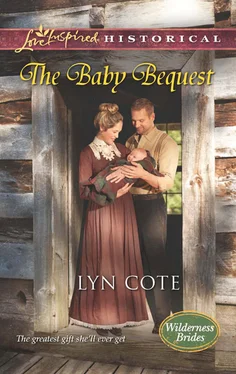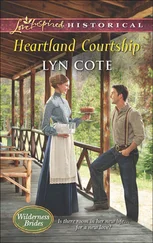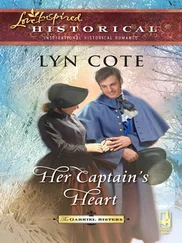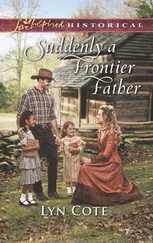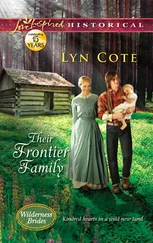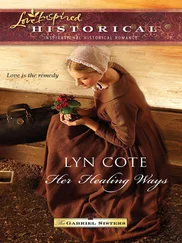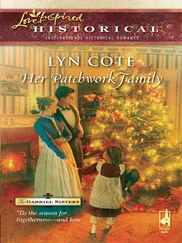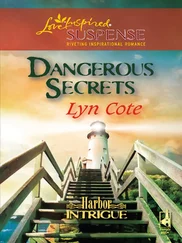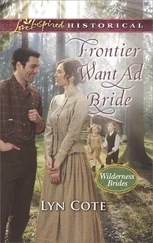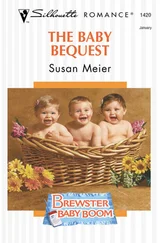The storekeeper entered the kitchen with a wooden box of glass bottles. With their goal in sight, Ellen slumped onto a chair at the small kitchen table. Surprising her, Mr. Lang lay the child in her arms and stepped back.
Again, holding the baby brought Ellen the waves of remembrance. Struggling against the current, she watched Amanda scrub a bottle clean while the older woman mixed the powdered milk with water and set it in a pan of water on the stove to warm. Within a few minutes, she handed Ellen the warm, wet bottle. Ellen wanted to offer the child to Mrs. Ashford, but the little boy flailed his hands toward the bottle and she quickly slipped it into his mouth. He began sucking. Bubbles frothed into the bottle.
Relief swamped Ellen.
Mrs. Ashford sat down at the table near her, watching the child eat. “He’s evidently hungry.”
“He has good appetite,” Mr. Lang agreed, gazing down with a grin.
Ellen released a pent-up breath. She felt as if she’d run a ten-mile race.
“Where did he come from?” Amanda asked again.
“I drive Miss Thurston home from her cousin’s,” Mr. Lang replied. “We find the baby in a wooden box on the doorstep.”
“Did you see anyone?” Mrs. Ashford asked sharply.
Ellen frowned. “I thought I saw movement in the woods. I called out but no one was there.”
“I’ve heard of this happening,” Mrs. Ashford admitted, “but I never thought I’d live to see it here. Someone has abandoned this child.”
“And on Miss Thurston’s doorstep,” Amanda murmured.
All of them stared at the baby in her arms.
No other reason could explain the child’s appearance. People didn’t go around misplacing infants.
Ellen gazed down at the small face that had changed from frenzied to calm. The evidence of tears still wet on his cheeks drew her sympathy, and tenderness filled her.
Who could part with you, little one?
“How old do you think he is?” Ellen asked.
“Hard to say,” Mrs. Ashford said, reaching over to stroke the white-blond, baby-fine hair. “But not more than a month old, if that.”
“Nearly newborn, then.” Ellen cuddled the child closer. The tension suddenly went out of the little body. The baby released a sound of contentment, making her tuck him closer, gentler. More unbidden caring for this child blossomed within her.
“Some people are superstitious about babies born with marks like that,” Mr. Ashford said, pointing at the baby’s port-wine birthmark. “Maybe that’s why they didn’t want him.”
“Yes, it’s sad the poor thing’s been born disfigured,” Mrs. Ashford agreed.
Ellen stiffened. “On the contrary, I’ve heard people say birthmarks are where babies were kissed by an angel.” Nonsense of course, but she had to say something in the child’s defense.
Mr. Lang bent, stroked the child’s fine hair and murmured some endearment in German. His tenderness with the child touched Ellen deeply.
“I can’t think of anybody hereabouts who was expecting a child. Can you, Katharine?” Mr. Ashford asked.
His wife shook her head.
“But babies don’t really come from cabbage patches,” Amanda said reasonably, “so where did he come from?”
“That’s enough about where babies come from,” Mrs. Ashford snapped.
“You better go off to bed,” the girl’s father ordered and motioned for her to leave.
Ellen sent the girl a sympathetic glance. Some topics were never discussed in polite society. “Good night, Amanda. Thank you for your help.”
The girl stifled a yawn as she left. “See you tomorrow at church, Miss Thurston.”
The mention of church snapped Ellen back to reality. “I better be getting home then. Dawn will come soon enough.”
The baby finished the bottle and Mrs. Ashford placed a dish towel on Ellen’s shoulder.
Laying the baby on it, Ellen rose, patting his back. She prepared to leave.
The older couple looked flummoxed. “You can’t mean you’re going to take this baby home with you to the school?” Mrs. Ashford popped to her feet.
“I don’t see that I have any other choice,” Ellen said, and waited to see if she’d be contradicted.
Despite her initial misgivings, the truth had already settled deep inside her. Someone had entrusted her with this child and she would not shirk that responsibility.
Mrs. Ashford said something halfhearted about Ellen not knowing how to care for an infant in an uncertain tone that didn’t fit the usually overconfident woman. Ellen hadn’t appreciated the woman’s comment about the child’s disfigurement, and she also knew without a doubt that the Ashfords shared the common prejudice against the illegitimate, the baseborn. “I’ll keep the child. I’m sure someone will realize they’ve made a mistake and come back for him.”
“I hope so,” Mr. Lang spoke up. “This is serious thing, to give up one’s own blood.”
His statement struck a nerve in Ellen. What had driven someone to give up their own child, their own kin?
Mrs. Ashford handed Ellen a bag of rags, three more bottles and the tin of powdered infant food. “Just mix it with water right before you need it.”
Ellen thanked them sincerely and apologized for bothering them after dark. The two had been more helpful than she would have predicted. Maybe she had judged them too harshly.
Ellen and Mr. Lang walked down the back staircase with the baby in her arms and the cloth sack of supplies over his shoulder. The toads still croaked at the nearby creek. Ellen brushed away a mosquito, protecting the baby from being bitten.
The baby had slipped into sleep. Still, his lips moved as if he were sucking the bottle. With a round face and a nice nose, he had white-gold hair that looked like duck down. His skin was so soft. She’d not felt anything so soft for a very long time.
Ellen had always told herself that she didn’t care for babies much, holding herself back from contact with them. But she knew—when she allowed herself to think about it—that all stemmed from losing her infant brother. His loss had altered her life, and led her to not fulfill her accepted womanly role. This had grieved her mother.
But now everything had changed. This child—who had been given to her—needed her. She bent down and kissed his birthmark.
“William.” She whispered the name that still caused such hurt.
“What?” Mr. Lang asked.
“I lost a brother by that name.” She couldn’t say more.
After a moment, Mr. Lang said quietly, “This baby will cause trouble.”
She paused.
“People will talk.”
She tilted her head as she gazed up at him tartly. “Everyone will know that this couldn’t possibly be my child.”
“I... Sorry,” he stammered. “I do not mean that. I mean, people will not want this child here. If someone gives away a child, no one wants him.”
She wanted to argue, but recalling the Ashfords’ comments and attitude, she couldn’t. “I will keep him, then.”
Mr. Lang looked quite startled. “They will not let you.”
“Why not?”
He lifted both his hands in a gesture of helplessness. “You are schoolteacher and unmarried. They will say—”
“What do you say, Mr. Lang?” she demanded suddenly, prodded by something she didn’t yet understand.
He gazed down at her. “I say that troubled times come here. Soon.”
She couldn’t argue with him. But she wouldn’t relinquish the child except to someone who would love him as he deserved. “Good night, Mr. Lang. Thank you.”
“Good night, Miss Thurston.” He paused as if he wanted to say more, but then merely waved and headed toward the cart.
She gazed down at the child as she entered her home and shut the door. She moved inside, rocking the child in her arms, humming to him. His resemblance to William, who had died before he turned one, brought back the pain and guilt over his loss, and for a moment, it snatched away her breath. Her little brother had been born when she was nearly fourteen, and he had left them so soon. And even though she didn’t want to remember, to be reminded, she couldn’t help herself.
Читать дальше
